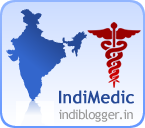Principles of medical ethicsa physician shall be dedicated to providing competent medical care, with compassion and respect for human dignity and rights.
A physician shall uphold the standards of professionalism, be honest in all professional interactions, and strive to report physicians deficient in character or competence, or engaging in fraud or deception, to appropriate entities.
A physician shall respect the law and also recognize a responsibility to seek changes in those requirements which are contrary to the best interests of the patient.
A physician shall respect the rights of patients, colleagues, and other health professionals, and shall safeguard patient confidences and privacy within the constraints of the law.
A physician shall continue to study, apply, and advance scientific knowledge, maintain a commitment to medical education, make relevant information available to patients, colleagues, and the public, obtain consultation, and use the talents of other health professionals when indicated.
A physician shall, in the provision of appropriate patient care, except in emergencies, be free to choose whom to serve, with whom to associate, and the environment in which to provide medical care.
A physician shall recognize a responsibility to participate in activities contributing to the improvement of the community and the betterment of public health.
A physician shall, while caring for a patient, regard responsibility to the patient as paramount.
A physician shall support access to medical care for all people.
Yet there is an area of grey, decisions and situations demand certain thinking. Hence an entire area of medical ethics and jurisprudence.
Definition:
Is a field of applied science, the study of moral value, judgement as applied to the medicine. As a scholarly discipline, medical ethics encompasses in its practical application in clinical as well as work on its history, philosophy, theology and sociology.
The branch of ethics that examines questions of moral right and wrong arising in the contest of practise of medicine.
History
The field is indebted to the Muslim physician though the antiquity is from the Hippocrates oath. Thomas Percival (1740-1804) used the term medical ethics when he wrote about medical jurisprudence. Eventually it re-invented itself to bioethics.
It was pioneered by Rabbi Immanuel Jacob in 1950. Since this is based on the rabbinic law of halalhah it deeply based in the Jewish faith.
Scope:
Is based on the 4 principles
Autonomy
Beneficence
Nonmaleficience
Justice
Autonomy sanctity of human life is of infinite value.
The religious precept to preserve health is not optional but is mandatory. A patient’s consent is required to perform live saving surgery,
Duty of procreate—abortions, contraception, sterilization are only allowed under emergencies that is to save the mother’s life. Mother’s life more relevant until child birth after which the child is considered as life.
Sanctity of marriage bond precludes any generation of human life outside it. This includes donor insemination or fertilization.
Duty to alleviate pain. It is mandatory to secure relief from pain a person does not own his body, he is only the custodian, cosmetic operations are allowed to promote legitimate end like marriage or employment prospects.
Respect for the dead autopsies is done only if findings can save another human life. Minimum organ transplants are allowed. The cadaver has to be interred with as many organs intact as possible.
Islamic ethics.
Are based on the Koran
Human life is valuable.
A physician takes an oath to protect life at all stages. And rescue it from death, malady, pain and anxiety. To all the way an instrument to Allah’s mercy extending medical care to near and far, virtuous and sinner and friend an enemy.
Contemporary ethics.
Autonomy is the right of an individual to self determination
Beneficence in medical terms means taking action to serve the best interest of the patients there are scholars who feel this claims only a focus on medicine then this takes precedence over autonomy. Cosmetic surgery, contraception, and euthanasia fall beyond its purview.
Non malefiecence is the concept of do no harm it more important not to harm the patient than do them good.
Justice is the patients right to dignity.
Informed consent is when the doctor explains the pros and cons of the patient, his current health scenario and the consequences of treatment. An informed patient then takes his decision.
Confidentiality between the doctor and patient this is privileged information. The doctor can refuse to disclose it even under an oath.
Monday, August 17, 2009
Subscribe to:
Post Comments (Atom)

No comments:
Post a Comment